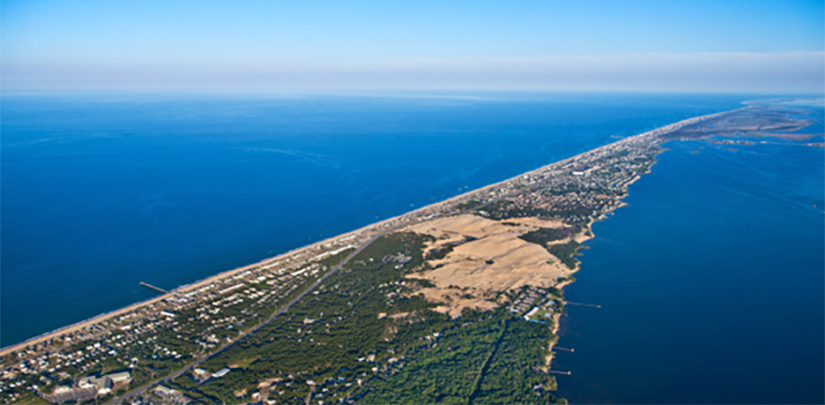Cohort 1: Nags Head, North Carolina
Nags Head, North Carolina, looked into energy resilience and integrating renewable energy sources for critical infrastructure with technical assistance from the Energy Technology Innovation Partnership Project (ETIPP).

Project Summary
 Population Size
Population Size
Year-round: 3,096; Seasonal: 40,000
 Technology Focus
Technology Focus
Solar, storage, microgrids
 Lead Lab
Lead Lab
National Renewable Energy Laboratory
 Regional Partner
Regional Partner
Located on the barrier islands of the Outer Banks of North Carolina, the town of Nags Head is vulnerable to frequent coastal storms. Working with NREL, Sandia National Laboratories, and the Coastal Studies Institute, the ETIPP team analyzed the town’s critical infrastructure energy needs, microgrid and renewable energy alternatives to enhance energy resilience, and the cost-effectiveness of different energy options for facilities supporting first responders.
The ETIPP project identified stakeholders and information sources to include in resilience planning as well as critical facilities and existing resilience investments to include in the analysis. It aimed to create educational materials surrounding renewable energy to easily incorporate into Nags Head’s resources.
Project Outcomes
The ETIPP project has resulted in positive engagement and healthy dialogue across the town, community leaders, and the utility provider (Dominion Energy) on integrating renewables to enhance resilience. The modeling and analysis using the Resilient Node Cluster Analysis Tool (ReNCAT) has provided new insights into microgrid options and the potential integration of business-critical infrastructure.
Key Takeaways
With significant turnover at the Town Planning Department, the community’s point of contact has changed several times, resulting in some challenges. Fortunately, town leadership has provided a steadfast commitment to the project.
Defining the scope and where to limit the project on the microgrid was another challenge, particularly when it came to providing a project that shows the value and relevancy of microgrids beyond the town’s infrastructure.
Energy policy could pose a future challenge in addressing microgrid implementation.
Opportunities and Impacts
Nags Head is exploring funding opportunities with the Coastal Studies Institute, state stakeholders, and Dominion Energy. And the Coastal Studies Institute is working with local schools to continue education programs that include programming about microgrids—how they work and how they can benefit island communities like Nags Head and others across the Outer Banks.
Additional Information
Town of Nags Head Chosen To Participate in Federal Energy Resilience Project, Town of Nags Head (2021)
Resilience Strategy, Town of Nags Head, North Carolina: N.C. Division of Coastal Management Report (2022)
Nags Head Joins 10 other ‘Islanded Communities’ in Project To Keep the Power On, The Outer Banks Voice (2021)
Share

